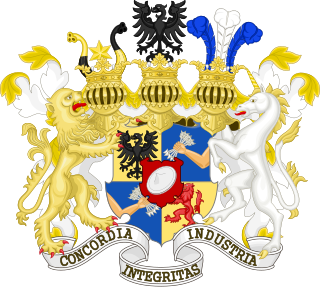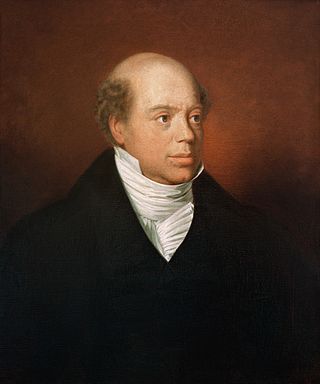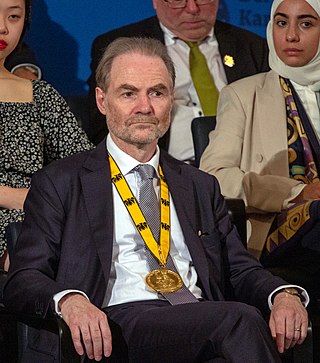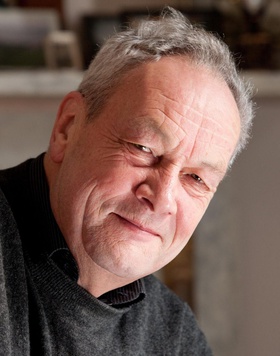
World War II or the Second World War was a global conflict between two alliances: the Allies and the Axis powers. Nearly all of the world's countries, including all of the great powers, participated in the conflict, and many invested all available economic, industrial, and scientific capabilities in pursuit of total war, blurring the distinction between civilian and military resources. Aircraft played a major role, enabling the strategic bombing of population centres and delivery of the only two nuclear weapons ever used in war. It was by far the deadliest conflict in history, resulting in 70–85 million fatalities. Millions died due to genocides, including the Holocaust, as well as starvation, massacres, and disease. In the wake of Axis defeat, Germany, Austria, and Japan were occupied, and war crime tribunals were conducted against German and Japanese leaders.

Pax Britannica was the period of relative peace between the great powers. During this time, the British Empire became the global hegemonic power, developed additional informal empire, and adopted the role of a "global policeman".

The Rothschild family is a wealthy Ashkenazi Jewish noble banking family originally from Frankfurt that rose to prominence with Mayer Amschel Rothschild (1744–1812), a court factor to the German Landgraves of Hesse-Kassel in the Free City of Frankfurt, Holy Roman Empire, who established his banking business in the 1760s. Unlike most previous court factors, Rothschild managed to bequeath his wealth and established an international banking family through his five sons, who established businesses in London, Paris, Frankfurt, Vienna, and Naples. The family was elevated to noble rank in the Holy Roman Empire and the United Kingdom. The family's documented history starts in 16th century Frankfurt; its name is derived from the family house, Rothschild, built by Isaak Elchanan Bacharach in Frankfurt in 1567.

Colin Hiram Tudge is a British biologist, science writer and broadcaster.

Nathan Mayer Rothschild (16 September 1777 – 28 July 1836, also known as Baron Nathan Mayer Rothschild, was an English-German banker, businessman and financier. Born in Frankfurt am Main, he was the third of the five sons of Mayer Amschel Rothschild and his wife, Guttle. He was the founder of the English branch of the prominent Rothschild family.

John Julius Cooper, 2nd Viscount Norwich,, known as John Julius Norwich, was an English popular historian, travel writer, and television personality.

Miri Rubin is a historian and Professor of Medieval and Early Modern History at Queen Mary University of London. She was educated at the Hebrew University of Jerusalem and the University of Cambridge, where she gained her doctorate and was later awarded a research fellowship and a post-doctoral research fellowship at Girton College. Rubin studies the social and religious history of Europe between 1100 and 1500, concentrating on the interactions between public rituals, power, and community life.

Niall Campbell FergusonFRSE is a Scottish–American historian who is the Milbank Family Senior Fellow at the Hoover Institution and a senior fellow at the Belfer Center for Science and International Affairs at Harvard University. Previously, he was a professor at Harvard University, the London School of Economics, New York University, a visiting professor at the New College of the Humanities, and a senior research fellow at Jesus College, Oxford.

Timothy Garton Ash is a British historian, author and commentator. He is Professor of European Studies at the University of Oxford. Most of his work has been concerned with the contemporary history of Europe, with a special focus on Central and Eastern Europe.

Sir Ian Kershaw is an English historian whose work has chiefly focused on the social history of 20th-century Germany. He is regarded by many as one of the world's foremost experts on Adolf Hitler and Nazi Germany, and is particularly noted for his biographies of Hitler.

Sir John Frank Kermode, FBA was a British literary critic best known for his 1967 work The Sense of an Ending: Studies in the Theory of Fiction and for his extensive book-reviewing and editing.

Norman Stone was a British historian and author. At the time of his death, he was Professor of European History in the Department of International Relations at Bilkent University, having formerly been a professor at the University of Oxford, a lecturer at the University of Cambridge, and an adviser to British prime minister Margaret Thatcher. He was a board member of the Center for Eurasian Studies (AVIM).

Jon Halliday is an Irish historian specialising in modern Asia. He was formerly a Senior Visiting Research Fellow at King's College London. He was educated at University of Oxford and has been married to Jung Chang since 1991. Halliday is the older brother of the late Irish International relations academic and writer Fred Halliday.
Jonathan Glover is a British philosopher known for his books and studies on ethics. He currently teaches ethics at King's College London. Glover is a fellow of the Hastings Center, an independent bioethics research institution in the United States, and is a Distinguished Research Fellow at the Oxford Uehiro Centre for Practical Ethics.

John Adam Tooze is an English historian who is a professor at Columbia University, Director of the European Institute and nonresident scholar at Carnegie Europe. Previously, he was Reader in Twentieth-Century History at the University of Cambridge and Gurnee Hart Fellow in History at Jesus College, Cambridge.
Anthony Stevens was a British Jungian analyst, psychiatrist and prolific writer of books and articles on psychotherapy, evolutionary psychiatry and the scientific implications of Jung's theory of archetypes.
James Preston O'Donnell was an American author and journalist.
The Third Reich Trilogy is a series of three narrative history books by British historian Richard J. Evans, covering the rise and collapse of Nazi Germany in detail, with a focus on the internal politics and the decision-making process. The three volumes of the trilogy – The Coming of the Third Reich, The Third Reich In Power, and The Third Reich at War – were published between 2003 and 2008. The books are illustrated with maps created by András Bereznay.
Peter Maurice Worsley was a noted British sociologist and social anthropologist. He was a major figure in both anthropology and sociology, and is noted for introducing the term Third World into English. He not only made theoretical and ethnographic contributions, but also was regarded as a key founding member of the New Left.

This is a bibliographyof works on World War II.















